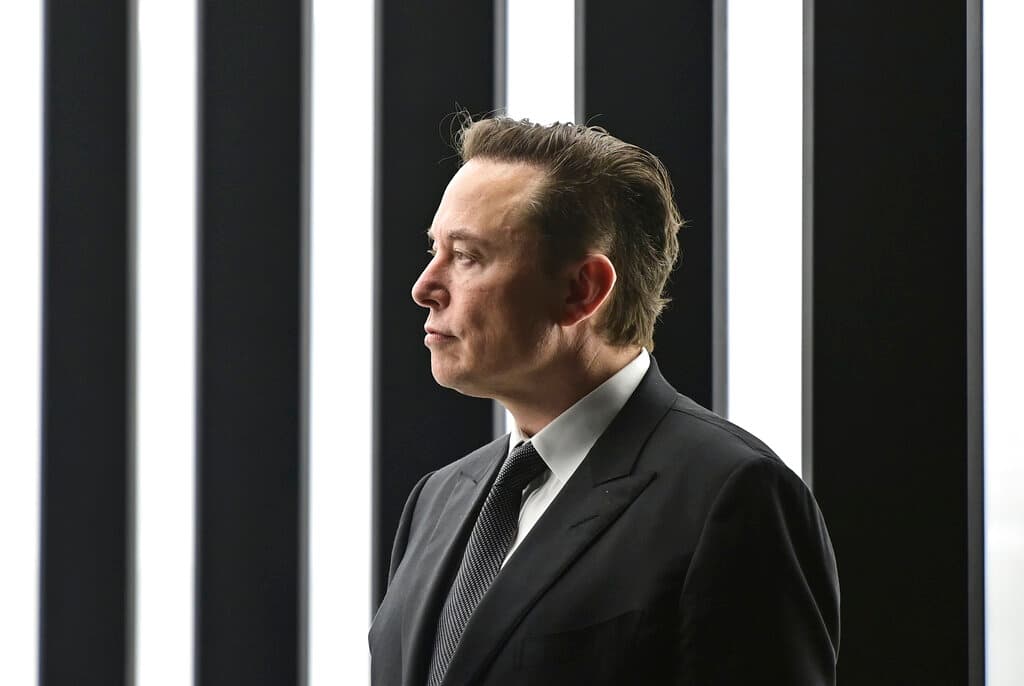Elon Musk Attempts Diplomacy Like a Bull in a China Shop
The entrepreneur is now feuding with Ukraine and Taiwan, for starters.

Elon Musk is at it again. The South African-born American phenom has plans to colonize Mars and other planets; legal issues involved in that endeavor may be adjudicated one day. Back on earth, Mr. Musk has become tangled up in two potential major controversies.
One is with the Pentagon over financing his satellite-based Starlink mobile communication operation in Ukraine. At the same time, he has sided with Moscow by suggesting Kyiv must compromise with the Kremlin. Plus, he wants Free China to succumb to Beijing’s coercion.
As Mr. Musk’s ongoing war with Twitter would attest, he is a free-speech hawk. Yet, as the world’s wealthiest man, Mr. Musk is also a top actor on the global stage. His words carry huge consequences, to the point that they could constitute interference in America’s foreign policy — though the Logan Act, banning private diplomacy, has gone unused for centuries.
Mr. Musk’s factory at Shanghai manufactures up to 50 percent of his Teslas — the electric cars that run on batteries composed of minerals mined almost exclusively in Communist China. No wonder, then, that he also sides with Beijing, as he did in an interview with the Financial Times last week.
Mr. Musk’s idea is to “figure out a special administrative zone for Taiwan that is reasonably palatable, probably won’t make everyone happy. And it’s possible, and I think probably, in fact, that they could have an arrangement that’s more lenient than Hong Kong.”
Well, the Hong Kong experience is far from palatable to the people of either Hong Kong or Free China. In Hong Kong, of course, China broke agreement with Britain, and Taipei’s envoy to Washington, Ambassador Hsiao Bi-khim, certainly was not happy with Mr. Musk’s policy prescriptions.
“Taiwan sells many products, but our freedom and democracy are not for sale,” Ms. Hsiao tweeted. “Any lasting proposal for our future must be determined peacefully, free from coercion, and respectful of the democratic wishes of the people of Taiwan.”
In sharp contrast, Ms. Hisao’s Communist Chinese counterpart at Washington was far from unhappy with Mr. Musk. Linking to the FT story, Ambassador Qin Gang tweeted, “I would like to thank @elonmusk for his call for peace across the Taiwan Strait and his idea about establishing a special administrative zone for Taiwan. Actually, Peaceful reunification and One Country, Two Systems are our basic principles for resolving the Taiwan question.”
While Mr. Musk’s policy ideas correspond with Beijing’s, they hardly fit Washington’s increasing aversion to President Xi’s growing belligerence in the Taiwan Straits, let alone his stated goal of spreading his ideology and replacing America as a global leader.
Since 1979, America has committed to assisting Taiwan’s defense against forced unification. Just recently President Biden has said several times that that commitment means America would defend Taiwan militarily against an invasion, though Mr. Biden’s aides have suggested otherwise.
A new bipartisan Taiwan Relations Act, initiated by Senators Menendez and Graham, is advancing in Congress. It would further strengthen America’s commitment to the free island’s defense, arm it to deter invasion, and impose sanctions on Beijing for hostile acts against Taiwan.
In his FT interview, Mr. Musk said that Beijing asked him not to deploy Starlink in China. Mr. Musk’s mobile communication system is capable of overriding government-imposed internet blackouts, and Beijing is so fearful of such assistance to would-be rebels that Chinese scientists have threatened to destroy Starlink’s satellites.
Mr. Musk’s Starlink has been a force for good in several troubled spots around the world. Most recently he has offered the system for use by protesters in Iran, where the regime has blacked out communication services as part of its clampdown on a month-long rebellion.
The details have yet to be worked out: How, for example, would the system’s hardware be delivered to the Iranians? In another part of the world, though, Starlink has already made a significant contribution.
Early in the Ukraine war, Russia imposed an internet blackout across the country. Then came Starlink, which helped Ukrainian forces to communicate and direct drones and other military equipment. Kyiv used the system to reinstall energy in bombarded areas.
Later, Mr. Musk suggested that to end the war, Ukraine should cede land — including Crimea — to Russia, and thus the honeymoon ended.
A Ukrainian diplomat, Andriej Melnyk, used a blunt epithet to coney what he called “my very diplomatic reply to you @elonmusk.” His tweet echoed President Zelensky’s aversion to Mr. Musk’s appeasement musings.
Now Mr. Musk is complaining about cost, saying that unless the Pentagon finances the future use of the system, he will pull Starlink from Ukraine. Addressing Mr. Melnyk’s language, Mr. Musk tweeted today, “We’re just following his recommendation.”
The FT describes Mr. Musk as “the visionary, the billionaire and the disrupter, the agitator and the troublemaker.” He is all that, and more. What he is not is a member of an elected government. His constant fighting against regulators and other government officials can be seen as a blessing. His foray into foreign policy is less so and could, conceivably, breach the spirit of the Logan Act.

